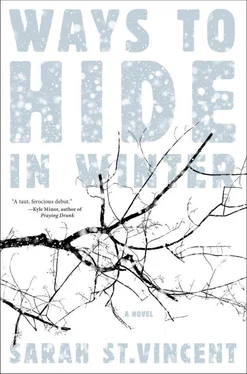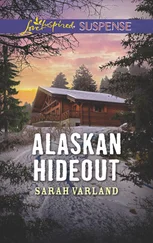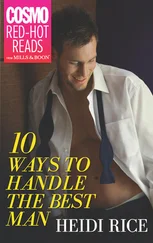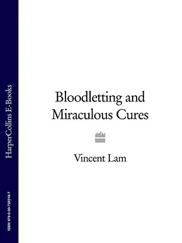I gazed up into the gray of the atmosphere. The longer I looked at it, the more it seemed to deepen, revealing itself to be finely graded, clouds blending into one another almost imperceptibly. I waited to see if a bird or an airplane would cross the sky, or something else would come along to break the stillness, but nothing did. I was alone, as alone as I could ever wish to be.
If I fell through, I thought, no one would see me. I would just disappear into the water. Maybe they’d find me in the spring, and maybe they wouldn’t.
A strange feeling ran up my spine at the thought, but I stayed where I was. The sky above me remained empty, as if some previous sky had been erased.
I wasn’t sure how much time had passed before I heard a sound in the woods; nothing much—a small shifting and crackling—but enough to make me come back to myself and peer around.
Rolling onto my side, I rocked forward and slowly pushed myself to my feet. Whatever it was I’d been trying to prove, I’d proven it. There was no reason to linger.
Carefully, I began picking my way back to the shore, passing my own footprints in the dusting of snow, trying not to notice that the left ones were slightly elongated. My breath quickened again with effort, and I leaned forward, appreciating for the first time just how far out I had gone. From here, the picnic tables looked like little more than children’s toys.
At last I reached the sand and stepped onto it, exhaling with a startled sound. For a moment I bent in half, hands on my knees, stomach fluttering. My mind seemed to draw back together, rejoining itself from the places where it had scattered.
What a stupid thing to have done.
I stayed there, letting my head hang between my shoulders, feeling the weight of my boots in the snow. Finally I straightened, bracing myself against my knees and ignoring the ache that was spreading in my bones, the numbness of my exposed skin. I stumbled to the Jeep and turned the heat as high as it would go, gripping the wheel as I rested my head against it. Then I put the car into gear, continuing north through the forest that petered out into the foothills.
In town, I did what had to be done, taking care of my business the way I always did.
“Grandma,” I said as I entered the house that night, pushing the door tightly against the jamb. She was in her orange overstuffed chair, facing away from me, her eyes on the television although she probably couldn’t see much more than a blur of light. The Price Is Right was on, as it somehow always was. Someone, a brunette in her forties, had just correctly guessed the price of laundry detergent and was jumping up and down on the stage, her hands clasped over her mouth, ecstatic. A curl of cigarette smoke rose over my grandmother’s head. “Where’s the sewing box?”
“In the kitchen closet. On top of the old microwave.” She didn’t turn around. “What do you need it for?”
“My coat’s torn.” My joints were still aching, but I strode as evenly as I could back into the kitchen at the rear of the old farmhouse, opening the narrow closet. The sewing box—an old cookie tin that rattled with buttons—was there, a rusting dull green. I carried it up to my room and sat heavily on the mattress.
“Beth called,” my grandmother bellowed from below.
“Okay,” I said, drawing my knees to my chest and leaning back against the wall. It wasn’t much warmer in the room than it was outside. I draped a blanket over my shoulders and glanced around at the bare space, the stacks of books and folded clothes in the corners, the map. I need to remind her how to re-light the woodstove, I thought, and opened the tin, searching for a needle.
When I found it, however, I leaned back against the wall and closed my eyes. It was amazing, I thought: the things we did that no one else knew about, that didn’t leave a sign, that we ourselves almost couldn’t believe.
When the night came, I turned off the light, curling up on my side and reaching under the mattress to feel for the paper bag I knew was there. Pinching two of the small ovals, I slipped them into my mouth and held them on my tongue for a moment before swallowing them without water. They were slightly bitter but otherwise tasted of nothing.
It was then that I realized I had never turned on the heat for the stranger. Even as the thought entered my mind, however, the deep red curtain fell over me, weighing on me, sending me into sleep.
The next morning was brighter, the sun slipping over the horizon as I stood in the bathroom, prodding my knee where I’d smacked it against the ice. There was an ugly bruise there, painful to the touch, but it was nothing. I pulled my clothes on, the fabric sliding up over the old scars, and turned my back on my reflection as I switched off the light.
Outside, I checked the mailbox, hoping for a postcard from my brother, as I always did. He’d left the valley years earlier, marrying a girl from Texas, someone he’d met in basic training, and moving from base to base before finally being sent overseas. I sometimes found a note from him among the bills and Publishers Clearing House envelopes, although not very often. When I did, the handwriting was always slanted and sparse, as if he were writing while running. Maybe he was.
The mailbox was empty.
The light was just breaking through the clouds as I drove the five miles to the gas station. At this hour, the only other people there were truckers, holding steaming cups of coffee as they chatted with one another, leaning against their rigs. One of them I thought I recognized from high school—elementary school, really. He was heavyset, with a pale, doughy face and hair in a crewcut. His father had been a trucker, too, I remembered, driving eighteen-wheelers for the potato chip company down in Hanover. John, the son, had always had a gravelly voice and almost dog-like friendliness, rasping good-naturedly to anyone who passed by. We’d been confirmed in the same church, long ago, two of the only Catholic children in the area, our families holding out somehow against the gulf of stern Scotch-Irish Presbyterianism and fiery Lutheranism that surrounded us. I still remembered kneeling next to him at our First Communion, envying his dirty knees and scuffed shoes as I sat there in my silly white dress.
I walked into the station as briskly as I could, staring straight ahead. The truckers’ eyes followed me, then dropped down to their cups. Only John continued to watch, his gaze meeting mine accidentally. I nodded, not knowing what else to do, and he nodded back, giving me the shy, cautious half-smile people had been giving me since the accident. Some of them remembered the rumors and were uncomfortable, I could tell; others simply didn’t know what to say. It didn’t matter; I wasn’t angry with them, not anymore. After all, I didn’t know what to say, either. Maybe there was nothing to be said.
The sun shone through the trees as I wound my way back up the mountain, a rapid patter of light and shade playing against the windows. The bottoms of the trunks were still blackened in places, but the branches were uplifted, tall and defiant, as if there had never been a fire. Farther on, the blue-and-gold memorial to the three girls passed by, a dark blot backlit by the sun. I wondered, at times, who maintained it. It had been there for some seventy years, the signboard with its short, stark sentences, and yet it never leaned, never faded. The paint was always fresh. One of the more thoughtful retirees, I imagined, some aging farmer who snuck out early in the morning to touch up the gold lettering and returned home before anyone could discover this strange impulse of anonymous kindness, this sentimentality about someone else’s long-ago tragedy.
Читать дальше












